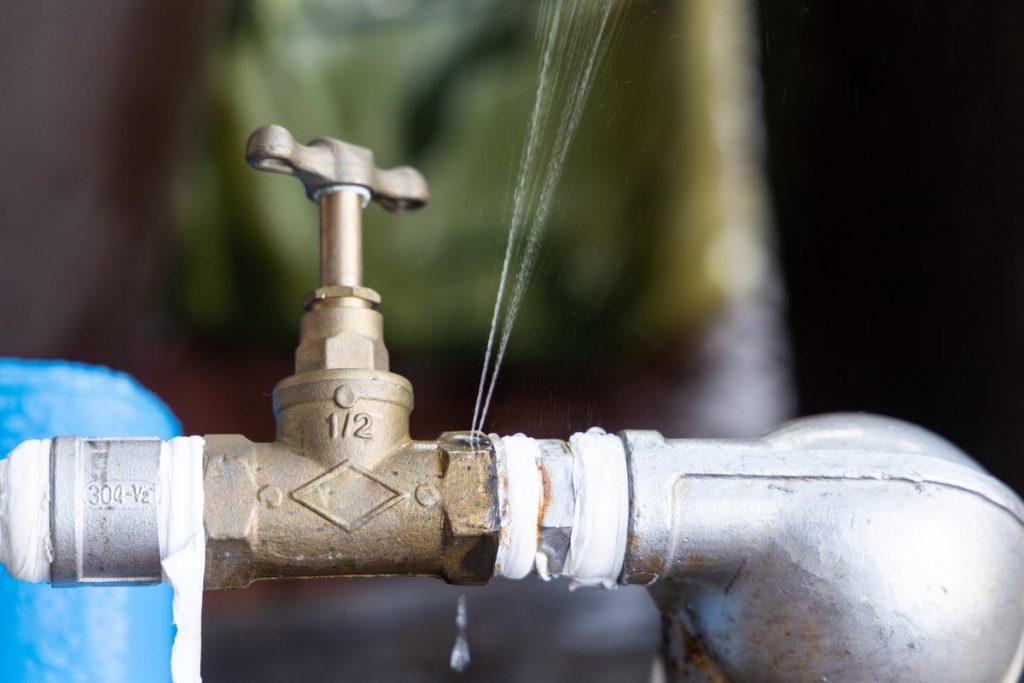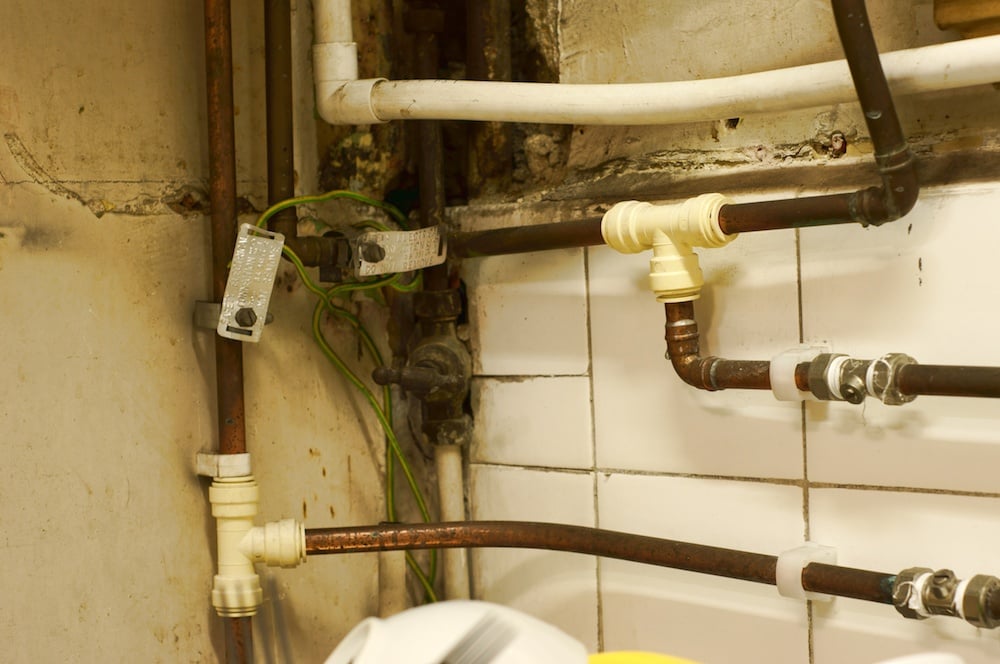Have you been interested in content around Plumbing Problems In Old Homes?

Older homes usually come with beauty, character, and background, however they can likewise bring a host of plumbing issues. Whether you're dealing with maturing pipes, low water stress, or leaks, understanding how to deal with these usual problems is vital to maintaining a safe and functional home. In this guide, we'll check out the common pipes challenges encountered by older homes and supply useful services to keep your plumbing in top shape.
Comprehending Common Plumbing Concerns
Aging Pipelines
Among the most usual problems in older homes is aging pipes. Relying on the period in which your home was built, the pipelines may be made from products that have worn away in time, such as galvanized steel, cast iron, or perhaps lead. These products can rust, end up being fragile, or establish leaks, leading to water damages and possible health hazards.
Water High Quality Screening
Older pipes can affect the top quality of your water. Conduct a water quality examination to check for impurities such as lead, rust, or other contaminations that may be presented by maturing pipes.
Solutions for Typical Pipes Concerns
Changing Aging Pipes
If your home has old, deteriorating pipelines, take into consideration replacing them with modern products like copper or PEX. This can be a significant financial investment, however it will certainly prevent future concerns and boost the safety and security and dependability of your plumbing system.
Dealing With Low Water Stress
To take care of low tide stress, begin by cleaning or replacing old components and getting rid of mineral buildup in the pipes. If the trouble lingers, it might be essential to change areas of corroded pipes.
Repairing and Changing Dripping Pipes
For small leaks, you can make use of pipeline clamps or epoxy putty as a temporary solution. Nonetheless, it's ideal to replace leaking pipelines completely to avoid further damage.
Updating Fixtures
Updating old components to modern-day, water-efficient designs can enhance your home's plumbing performance and lower water usage. Look for fixtures with the WaterSense label for the very best performance.
Dealing with Pipeline Corrosion
If your pipelines are rusted, changing them with corrosion-resistant products like copper, PVC, or PEX is the best option. Regular inspections and water quality upkeep can assist avoid even more corrosion.
Low Water Stress
If you're experiencing low tide stress, it could be due to natural resources, rust inside the pipes, or old components that are no more operating successfully. This can be a major hassle, especially in locations like showers and sinks.
Leaking Pipelines
Leaks are one more regular issue in older homes, often brought on by rusty or worn-out pipelines. Even small leakages can bring about substantial water damage, mold growth, and boosted water costs if not dealt with without delay.
Obsolete Fixtures
Outdated plumbing fixtures such as taps, bathrooms, and showerheads not just look old yet may likewise be much less efficient, vulnerable to leakages, or incompatible with modern pipes criteria.
Pipe Corrosion
Rust is a common trouble in older pipes, specifically those made from galvanized steel or actors iron. Corroded pipes can restrict water flow, trigger discoloration, and eventually cause leaks or pipe ruptureds.
Evaluating the Condition of Your Pipes
Examining Noticeable Pipes
Beginning by examining any kind of visible pipes in your house, such as those in basements, crawl spaces, or under sinks. Seek indications of corrosion, leaks, or rust, which can show underlying problems.
Looking for Leaks
Check for leakages by inspecting areas around taps, commodes, and under sinks. You can also check your water meter prior to and after a duration of no water use to find hidden leaks.
When to Call an Expert
While some pipes concerns can be taken care of with do it yourself solutions, there are times when it's best to contact an expert. If you're managing significant leakages, considerable deterioration, or are unclear concerning the problem of your pipes, a certified plumbing can give skilled assessment and fixing.
Preventive Maintenance Tips
Regular Inspections
Consistently inspect your pipes system for signs of wear and tear. Capturing problems early can protect against pricey fixings down the line.
Water Pressure Law
Guarantee your water stress is within the recommended array to prevent stressing your pipes and fixtures. A plumbing professional can install a stress regulatory authority if needed.
Water Quality Maintenance
Mount water filters or softeners if your water top quality is poor. This can shield your pipelines and fixtures from damage caused by tough water or pollutants.
Proactive Pipeline Replacement
If your home has older pipelines, consider aggressive replacement before significant problems occur. This can save you from emergency situation repair services and water damage.
Final thought
Managing plumbing issues in older homes calls for a mix of caution, preventive maintenance, and prompt upgrades. By understanding the usual obstacles and recognizing when to look for specialist aid, you can guarantee your pipes system remains useful and reputable for many years to find.
Common Plumbing Issues in Older Homes and How to Fix Them
Owning an older home in Australia comes with its unique charm and a set of challenges, especially when it comes to plumbing. The Sunshine Coast has many older properties that can harbour plumbing problems that aren t just inconvenient but potentially costly. Here s a look at some common plumbing issues in older homes and expert advice on how to handle them.
Outdated Piping Materials
Many older homes were built with galvanised steel, cast iron, or even lead pipes, materials that are far from ideal by today s standards. Galvanised pipes are prone to corrosion and clogging, while lead pipes pose serious health risks.
How to Fix:
Replacing old pipes is a job for a professional. Upgrading to copper or PVC piping not only enhances water quality and flow but also increases the property s safety and value. If you suspect your home has outdated materials, a licensed plumber can conduct a thorough inspection and recommend the best course of action.
Corrosion and Pipe Degradation
Over time, exposure to water and minerals can cause pipes to corrode, leading to leaks, bursts, and water contamination. Corrosion is especially common in homes over 50 years old.
How to Fix:
Regular inspections can catch early signs of corrosion. If corrosion is found, the affected section of piping often needs to be replaced. For homes with extensive corrosion, a complete plumbing overhaul might be necessary. It s crucial to consult with a plumbing expert to understand the extent of the issue.
Tree Root Intrusion
Older neighbourhoods usually have mature trees whose roots can intrude into pipe lines, causing blockages or damage. This is particularly problematic for sewer lines, where roots seek out water sources.
How to Fix:
A plumber can use a specialised camera to inspect sewer lines for root intrusion. If roots are a problem, methods like root cutting or hydro-jetting can clear the obstruction. In severe cases, part of the pipe may need replacing. Consider root barriers around the piping to prevent future issues.
Inadequate Water Pressure
Low water pressure in older homes can be due to various factors, including corroded water lines, sediment build-up in pipes, or outdated fixtures.
How to Fix:
First, check if the low pressure is isolated to one area or throughout the house. Replacing old fixtures can sometimes resolve the issue. However, if the problem is more widespread, it might be due to sediment or corrosion. Flushing the system or replacing the affected pipes usually restores normal pressure. Again, a professional assessment is advisable.
Outdated Fixtures
Older homes often feature fixtures that are not only visually dated but functionally inefficient. This includes everything from toilets and taps to showerheads and washing machine hoses.
How to Fix:
Updating these fixtures can improve both water efficiency and the aesthetic appeal of your home. Modern fixtures are designed to conserve water, which can significantly reduce your water bill and lessen your environmental impact.
Conclusion
Maintaining the plumbing in an older home requires a proactive approach. Regular checks and updates are key to preserving these beautiful properties. If you re facing plumbing issues in your older home, it s best to call on experienced professionals like Green & Gold Plumbing & Gas. With the right expertise, even the most daunting plumbing problems can be resolved, ensuring that your home s character is maintained while its functionality is enhanced.
https://gandgplumbing.com.au/common-plumbing-issues-in-older-homes-and-how-to-fix-them/

I am very enthusiastic about Common Plumbing Problems in Older Homes and I hope you liked the entire post. Liked our piece? Please share it. Help someone else check it out. I recognize the value of reading our article about Plumbing Issues in Older Properties and How to Fix Them.
Get Quote
Comments on “Resolving Plumbing Issues in Older Homes: Proven Techniques”